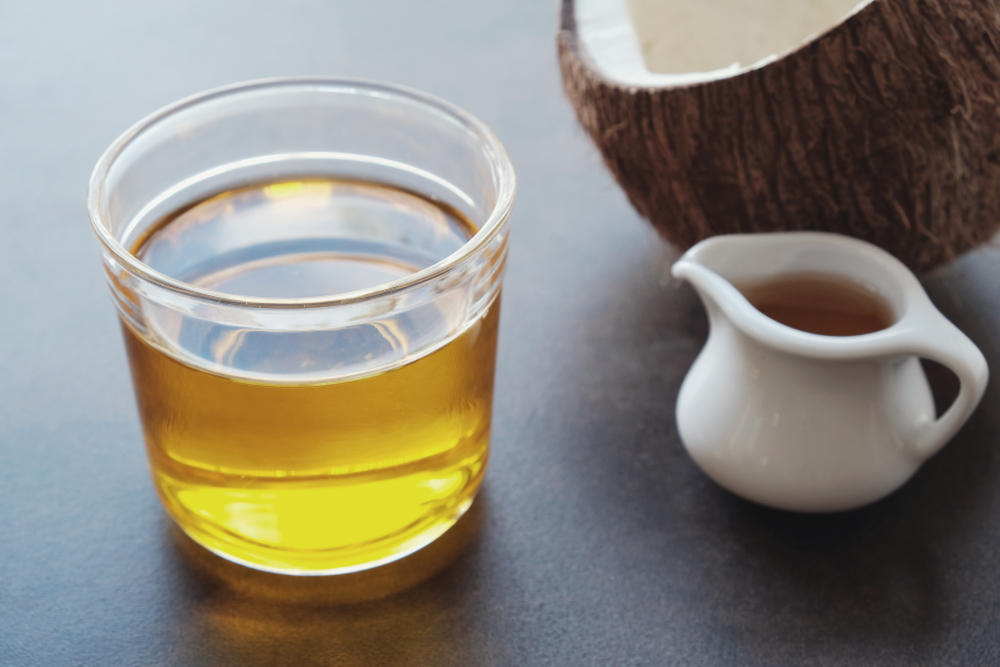
5 Reasons Why MCT Oil a Great Alternative to Coconut Oil
The term MCT stands for medium chain triglycerides (MCT). It has become increasingly popular as an ingredient in “Bulletproof Coffee”. Although there is a lot of confusion regarding the consumption of MCT instead of coconut oil, it needs to be kept in mind that coconut oil itself contains four kinds of MCT. MCT oil refers to fatty acids that contain medium-chain triglycerides. These interact with human biology differently from other long chain triglycerides (LCT), such as coconut oil.
There are 4 main MCTs
Caproic Acid (C6): This is an effective source of energy in the brain and is a ready supplier of ketone energy to the body.
Caprylic Acid (C8): This rare type of MCT is useful for energy metabolism.
Capric Acid (C10) : Another good tool for energy metabolism because it does not require any bile salts for digestive purposes, making it easy to digest and convert into energy.
Lauric Acid (C12) : This is a medium chain triglyceride that behaves like an LCT because it has to visit the liver before turning into energy. This happens to be the main component of coconut oil.
Recommended Read: How Oil Pulling Benefits Your Teeth
Comparison of MCT oil over Coconut oil
Energy metabolism
The path through which MCT oil is absorbed is its biggest plus point. Unlike coconut oil, it does not pass through the lymphatic system and requires bile salts for digestion. This benefit although generally an advantage becomes a boon for people with absorption problems. To compare with sugar, research conducted showed that MCT requires just 3 steps in the body to turn it into ATP (energy molecules) whereas sugar needs 26 steps. Since they have a thermogenic effect, they have the ability to positively alter metabolism.
Brain health and degenerative diseases of the brain
As per studies, MCT oil has been found to be useful for patients suffering mild to moderate Alzheimer’s. Also, when MCT were combined with traditional and experimental therapies, such as memantine, better results have been achieved. Caprylic acid or C8 has specific benefits as an alternative energy source, which aids the brain to solve symptoms of Alzheimer’s disease. This component of MCT is much more in MCT oil as compared to coconut oil. The MCT oil based ketogenic diets are also be beneficial in Parkinson’s disease.
Weight loss by ketosis
When compared to its counterparts, MCT oil is said to have greater fat burning capacity and a greater weight loss than other fats. It also increases insulin sensitivity, which benefits diabetics and the morbidly obese. The maximum benefits of MCT oil are related to ketogenic diets and attaining a ketogenic state. MCT oil is a more “palatable” option as compared to the generic ketogenic oil this is coconut oil.
Recommended Read: Krill Oil Vs. Fish Oil: What Should You Choose?
Protects heart health
As per a 2010 study, MCTs can help prevent development of metabolic syndrome, that includes conditions such as abdominal obesity, dyslipidemia, hypertension and impaired fasting glucose levels. This aids in decreasing cardiovascular disease and mortality risk in general by lowering the odds of becoming obese. Their anti-inflammatory, easy to digest and satiating properties can also lead to that effect.
Withstanding high-heat cooking
Contrary to coconut oil, MCT oils are better for cooking since they have a high smoke point. They don’t oxidize from heat easily and can withstand higher temperatures as compared to the easily burnt coconut oil.
- MCT oil has around 10% lesser calories than coconut oil.
- It is absorbed faster and is less likely to be stored as fat.
- MCT oil can make you feel more full by generating hormones like leptin making you eat less.
Although the debate is rife regarding which of the two oils is better, it has been successfully established that there needs to be a balance of both the oils for optimum results. To create this balance it can be opted to cook food in coconut oil while adding MCT oil in coffee or be taken as a supplement.
As far as the answer to the question of being better that coconut oil, there are quite a few supporting factors that do keep MCT oil on a higher pedestal when compared to coconut oil. Being a little on the pricier side, since it is harder to extract, MCT holds a greater amount of C8 and C10 as compared to coconut oil, which finally puts it for the win.




